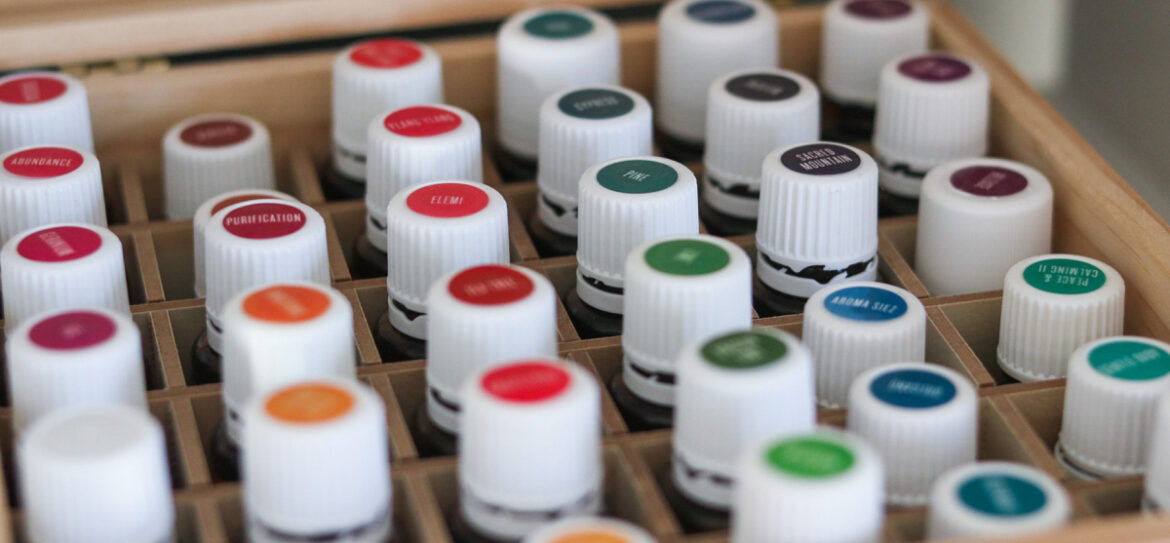Essential oils are highly concentrated plant extracts that are used for their therapeutic and aromatic properties. They are extracted from different parts of a plant, including leaves, stems, roots, flowers, and fruits. They are used for a variety of purposes, including aromatherapy, massage, natural skincare, and even as natural remedies for various health conditions.
One of the primary benefits of these oils is their ability to provide a natural alternative to synthetic fragrance products. Synthetic fragrance products are often filled with harmful chemicals and synthetic fragrances that can irritate skin, eyes, and airways. Essential oils, on the other hand, are made from natural ingredients and provide a safer and more natural alternative.
Essential oils offer more than fragrance
Essential oils are also known for their therapeutic properties. They are used to help alleviate stress, anxiety, and depression. For example, lavender oil is often used for its calming and relaxing effects, while bergamot oil is used for its ability to improve mood and reduce anxiety. They can also help with physical health issues, such as headaches, muscle pain, and even menstrual cramps.
In addition to being used for their therapeutic properties, essential oils are also commonly used in natural skincare. Oils such as tea tree oil, lavender oil, and frankincense oil are known for their antiseptic, anti-inflammatory, and skin-healing properties. They are used in various skincare products, such as facial cleansers, toners, and moisturizers, to help soothe and revitalize the skin.
Satisfy the senses for holistic healing
Essential oils are also used in massage therapy. Massage therapy can help to relieve muscle tension, improve circulation, and promote relaxation. When combined with calming oils, it can offer a more holistic and natural approach to healing and wellness. For example, eucalyptus oil is often used to help alleviate muscle pain and improve respiratory function, while peppermint oil is used to improve energy and focus.
Another benefit of healing oils is that they can be used as natural remedies for various health conditions. Peppermint oil, for instance, is often used to treat digestive problems, such as nausea and indigestion, while eucalyptus oil is used to treat respiratory issues, such as colds and flu. They can also be used as natural insecticides to keep pests and insects away, or as natural disinfectants to clean and purify surfaces.
Don’t forget about carrier oils
Carrier oils are a type of oil that is used to dilute essential oils before they are applied to the skin. Essential oils are highly concentrated and can be irritating or even toxic if used directly on the skin. Carrier oils help to reduce the concentration of the oils, making them safer and more suitable for topical use.
Carrier oils are also known as base oils or vegetable oils, and they are derived from various plant sources. Some popular carrier oils include sweet almond oil, jojoba oil, coconut oil, and grapeseed oil. Each carrier oil has its own unique properties and benefits, making them ideal for various skin types and conditions.
Sweet almond oil is rich in vitamins and minerals, making it ideal for nourishing and hydrating the skin. Jojoba oil is a light and non-greasy oil that is suitable for all skin types, including sensitive skin. Coconut oil is known for its antibacterial and antifungal properties, making it ideal for treating skin conditions such as acne and fungal infections. Grapeseed oil is a light oil that is rich in antioxidants and is ideal for improving skin elasticity and reducing the appearance of fine lines and wrinkles.
Diluting Essential Oils with Carrier Oils
When using essential oils with carrier oils, it is important to dilute the essential oil in the carrier oil according to the recommended dilution rate. A common dilution rate is 1-3% essential oil to 97-99% carrier oil. This means that for every 1 ounce of carrier oil, you would use 1-3 drops of essential oil. It is important to use the correct dilution rate to prevent skin irritation and to ensure the safety and effectiveness of the essential oil.
In addition to diluting essential oils, carrier oils can also enhance their therapeutic benefits. For example, when combining lavender essential oil with sweet almond oil, the nourishing properties of the sweet almond oil can help to enhance the calming and relaxing effects of the lavender essential oil.
Carrier oils can also be used on their own for skin and hair care. For example, coconut oil is often used as a deep conditioning treatment for hair, while jojoba oil is used as a natural face moisturizer.
In conclusion, essential oils are a natural and effective alternative to synthetic fragrance products and pharmaceuticals. They provide a wide range of benefits, including the ability to reduce stress and anxiety, improve physical health, and support natural skincare. However, they should be used with caution and diluted properly before use. With proper use, they can provide a holistic approach to healing and wellness, and help to support overall health and well-being.




